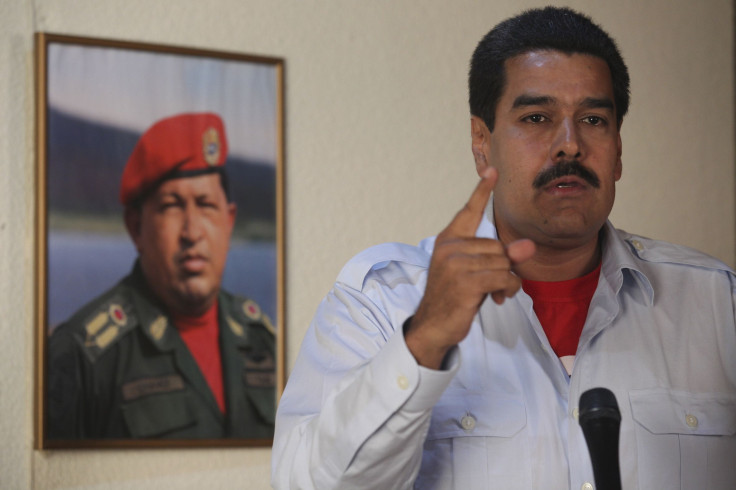Venezuela Elections: Maduro Says CIA Plotting To Kill Capriles To 'Create Chaos'

Venezuela’s interim president, Nicolas Maduro, has claimed the U.S. government is plotting to assassinate his political rival in order to sew unrest before the April 14 elections.
On Sunday, he urged U.S. President Barack Obama to halt what he said was a scheme by the CIA and the Pentagon to kill opposition leader Henrique Capriles Radonski and pin it on Venezuela’s socialist government.
“I call on President Obama -- Roger Noriega, Otto Reich, officials at the Pentagon and at the CIA are behind a plan to assassinate the right-wing presidential candidate to create chaos,” Maduro said, referring to former Bush administration officials Noriega and Reich, Reuters reported.
Reich had previously served as assistant secretary of state for Western Hemisphere Affairs during the 2002 failed coup against former president Hugo Chavez, in which he was removed from power for nearly two days.
In the immediate aftermath, Reich moved quickly to express support for the interim administration under Pedro Carmona, who was ultimately removed after public demonstrations and loyalist factions in the military restored Chavez to power.
Chavez accused the U.S. government of knowing in advance about and supporting the coup, which the Bush administration denied.
Noriega succeeded Reich in 2003. Both men are no longer working in government positions.
Meanwhile, the current U.S. government has denied Maduro’s charge, which follows previous accusations by the acting president that Washington had also given Chavez cancer.
"We categorically reject allegations of U.S. government involvement in any plot to harm anyone in Venezuela," State Department spokesman Patrick Ventrell said.
Capriles himself has said Maduro would be to blame if anything were to happen to him.
The death of Chavez earlier this month and the subsequent scheduling of snap elections to replace him has reignited political tensions in the oil-rich South American country.
Chavez, who had been in power since 1999, was re-elected to another six-year term last October. He was unable to take office in January amid his worsening cancer illness, which eventually took his life on March 5 after a two-year battle.
In December, Chavez designated Maduro, then the vice president, as his political heir, giving the first indications that the Venezuelan government was preparing for a power transition in the near future.
With the late-notice presidential campaign in full swing, both candidates have already shared heated exchanges.
Before formally announcing his candidacy last Monday, Capriles accused Maduro and the Venezuelan government of lying about Chavez’s illness and using his death to their political advantage.
Maduro shot back, calling Capriles a “fascist” and denouncing the mention of Chavez as disrespectful.
© Copyright IBTimes 2024. All rights reserved.











